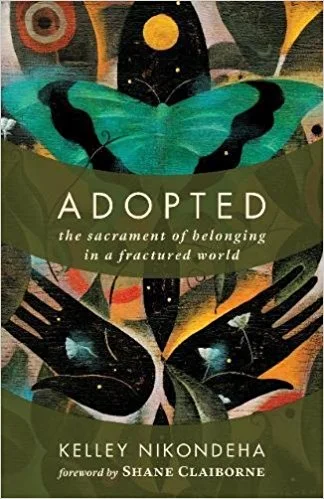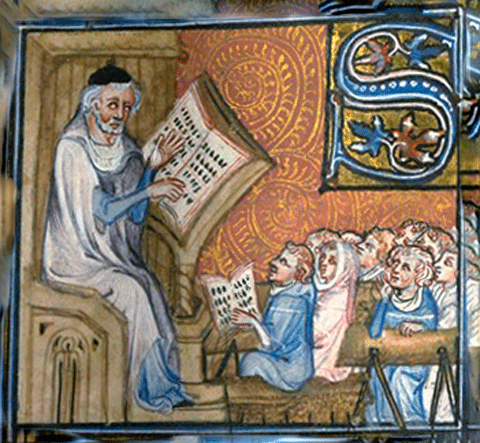Review of "Adopted" by Kelley Nikondeha
Review of Adopted: The Sacrament of Belonging in a Fractured World by Kelley Nikondeha (Grand Rapids: Eerdmans, 2017), 197 pp.
reviewed by Sarah Hinlicky Wilson
If all inspirational books were like Kelley Nikondeha’s Adopted, we’d have a much a healthier church. Its piety is deep and genuine, its hope is tested by trial. If you are—or anyone you know is—struggling with fear, isolation, or forgetfulness about what makes for a good life, Adopted will bring you back to a better place.
I’ll be forthright about my own interest in this book. I’m an adoptive mother, and being one has been one of the greatest gifts God has ever bestowed upon me. It didn’t start out looking that way. Though adoption had always been a vague, long-term plan, my husband and I sped up the time line when biology proved uncooperative. In my grief I looked to Scripture for answers, not expecting to find anything—and was tremendously surprised when I found how deep and pervasive the theme of adoption is across both Testaments. I put to pen my own ruminations on the topic more than ten years ago already.
That essay reads to me now as raw in its grief. My grief is not raw anymore; it has healed, and the adoption of our wonderful son has much to do with it. I have quite naturally continued to be intrigued and interested when others see the deep roots of adoption in our sacred narrative, as in this volume, and this one, and this one. When I saw a new book that put the theme front and center, I couldn’t resist.
Adopted is a loosely connected series of reflections following something like the adoption process itself (and all alliteratively starting with the letter R): Roots, Relinquish, Receive, Reciprocate, Redeem, Repair, Return, and Relatives. Nikondeha interweaves her own experience of being both an adoptive daughter and an adoptive mother as well as her Christian journey, from Catholicism through Evangelical/Pentecostal communities back to Catholicism, all the while maintaining close connections with various Protestants and Muslims. Her identity has been dualized, not only through adoption but also through marriage: her husband Claude is Burundian, as are their adopted children, and they divide their time between the U.S. and Burundi. So Nikondeha has lived in her own flesh what it means to have multiple kind of families, multiple kinds of kinship, multiple kinds of nationhood. She also draws freely on the example of friends who have in their own ways embodied this kind of connectedness.
The net effect is that adoption is not a matter restricted to the adopted or adoptive but captures an essential facet of all human living, a complement rather than a rival to our inescapable biological interrelatedness (whether as close as genetic family or as distant as only having a common prehistoric ancestor). There’s a reason it is a deep biblical theme, stretching outward from family toward the church. Nikondeha is trying in this book to sketch out what I’ve called elsewhere an adoptive ecclesiology: Jesus was not adopted by the Father, but we certainly are! That’s the right kind of “adoptionism.”
The only reserve I have—and this is a mild one, against the greater picture of the book—is a kind of uneasiness when any ecclesiology can function pretty well without the cross and the apocalyptic dimension that it brings to the church. Granted, it’s no fun to live in an apocalypse, and Nikondeha certainly grants that much is wrong with the world: precisely why the task of knitting it back together through our various adoptive strategies is so urgent. I don’t think Nikondeha is avoiding the issue deliberately; it’s simply not at the center of her vision. That may be a deep-seated difference in a Catholic piety of continuity and grace-redeeming-nature, on the one hand, and a Lutheran one that stresses discontinuity and paradox.
Yet to interpret her work in positive Lutheran terms: the most important contribution Adopted makes is to illustrate vividly that transformative ethical, political, and social change does not emerge from being instructed, in shrill or heavy-handed or moralistic ways, to love your neighbor, do good by your enemies, or welcome the stranger. It comes from actually being thrown in their path and experiencing those neighbors, enemies, and strangers as gifts—as grace. In the process, them starts to become us and the impulse to act in kindness is not stifled but unleashed. Community with such like is not an artificial exercise in virtue-signaling (the twenty-first-century term for “works righteousness”) but simply the substance of the life God intends for His creatures. Nikondeha beautifully reminds that this, after all, is what the good life is all about.
Sarah Hinlicky Wilson is the Editor of Lutheran Forum.
Subscribe now to enjoy great content like this delivered quarterly to your door!




